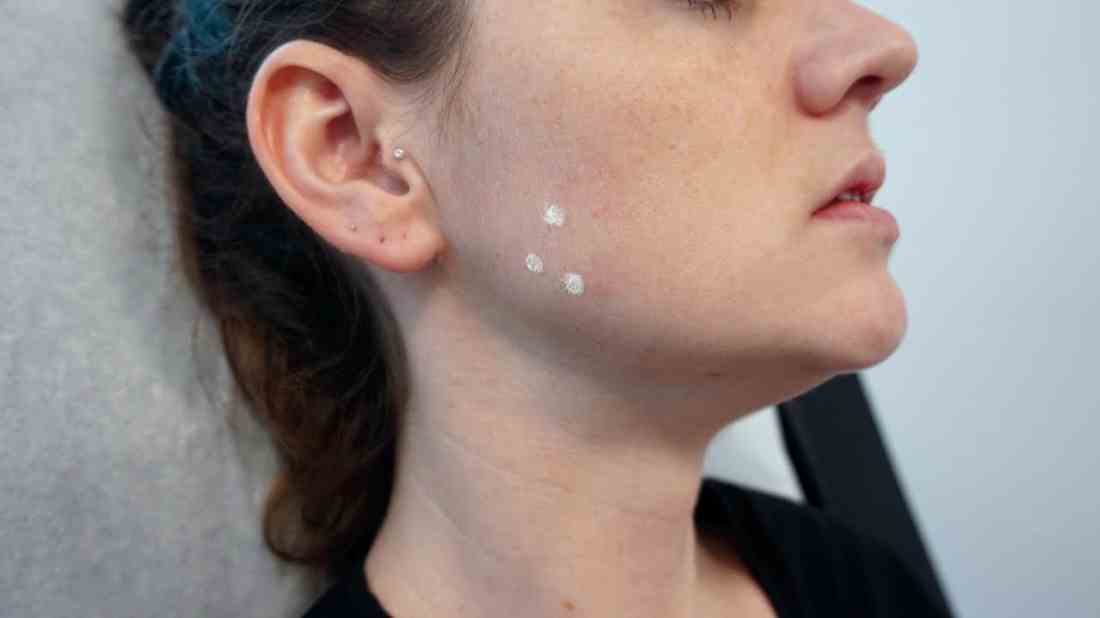Bruxism is the term for unconscious clenching and grinding of teeth. It typically happens while you are asleep, but many people experience this issue during the day. Awake bruxism is linked to heightened emotions like anger, tension, frustration, anxiety, and stress. Chronic cases of bruxism can cause a lot of dental problems like chipping or flattening of the teeth, loss of tooth enamel, or increased tooth sensitivity. It can also cause earaches, headaches, and facial pain.
Botox for Bruxism

What Causes bruxism?
It is usually viewed as a sleep-related disorder. People with sleep apnea, snoring problems, and other sleep disorders typically grind or clench their teeth. It is completely unclear what causes teeth grinding, but the combination of genetic, physical, and psychological factors can contribute to its prevalence. Mild bruxism does not require treatment. But when teeth grinding is becoming more severe and frequent or is causing damage to your teeth, headaches, and widening of the masseter muscles, it is crucial to seek professional help.
Botox for bruxism?
Recently, using botulinum toxin to resolve bruxism problems has become one of the popular non-surgical treatments. Many patients who underwent this procedure said that their teeth grinding episodes stopped. It is also a perfect alternative wide jaw treatment for people who are afraid of surgical procedures.
Bruxism-related Botox has two functions- therapeutic and cosmetic. Therapeutic is when it weakens the masseter muscle to alleviate the pain from the teeth grinding. Cosmetic is when it softens the appearance of the lower face and reduces the jaw’s square appearance.
Is Botox safe?
Botox is a purified protein that intervenes with the nerve-muscle function by blocking the nerves from firing the muscles. It is from Clostridium Botulinum, a bacteria that causes the rare illness called ‘Botulism.’ But no need to worry because the Botox injections use very pure proteins that have no attributable risk of causing harmful side effects. It has been used by many seasoned clinicians and cosmetic doctors for many years.
Botox treatment is administered by a cosmetic doctor or a licensed practitioner. Make sure to find someone with extensive experience and expertise in this field to ensure your safety. While the procedure is generally safe, a slight error can cause nerve death, pain, and other possible complications.
Who is disqualified from getting a Botox for Bruxism?
People with Bell’s palsy, Myasthenia gravis, and other neuromuscular disorders face a serious risk of extreme side effects, so they should avoid Botox treatment for bruxism. Pregnant and breastfeeding mothers are also not qualified to have it. Moreover, if you suffer from an allergy to cosmetic ingredients or skin infection, stay away and look for a safer solution to your teeth grinding problem.
How does it work?
Botox provides tremendous relief from the unpleasant effects associated with bruxism. It has muscle-relaxing properties that temporarily stop teeth grinding and jaw clenching. After the injection, the muscle becomes weak and unable to make involuntary movements. When used to treat severe square jaw or hypertrophy caused by excessive muscle movements, it leads to eventual loss of the enlarged muscle mass. However, while this option is not a cure for bruxism, it can effectively control the occurrence of symptoms. Results of Botox can last for 3-4 months.
See Also: How to Boost Your Workout Performance
What is the procedure?
After a thorough examination and review of your medical history, your doctor will prepare you for the injection. Depending on your masseter muscles’ condition, you will be injected with small doses of Botox multiple times on both sides of the jaw or just one or two injections on either side. The usual amount of Botox to treat bruxism ranges from 60 and 100 units. The effects usually kick in within a week, lessening the occurrence of teeth clenching.
Does the Botox procedure hurt?
The doctor uses very small, fine needles and usually asks the patient if he wants to use topical anesthesia to avoid pain or discomfort. After the treatment, you can go back to your usual routine or work.
Are there side effects?
While Botox treatment for bruxism is relatively safe when done by an experienced doctor, expect some minor and short-term side effects like swelling, bruising, pain or discomfort at the injection sites, flu-like symptoms, headaches, droopy eyelid or cockeyed eyebrows, excessive tearing, or eye dryness, drooling, and crooked smile. For more serious effects like vision problems, muscle weakness, breathing problems, trouble swallowing or speaking, and loss of bladder control, call your doctor immediately.
How much is the cost of Botox in the UK?
In the UK, the cost of getting Botox for bruxism can range from £100 to £350 every session, depending on the clinic’s reputation.
Like other injectable or non-surgical treatments, the positive effects of Botox are only temporary. It is up to you if you like regular treatment to prevent the symptoms of teeth grinding.
Post You May Also Like




